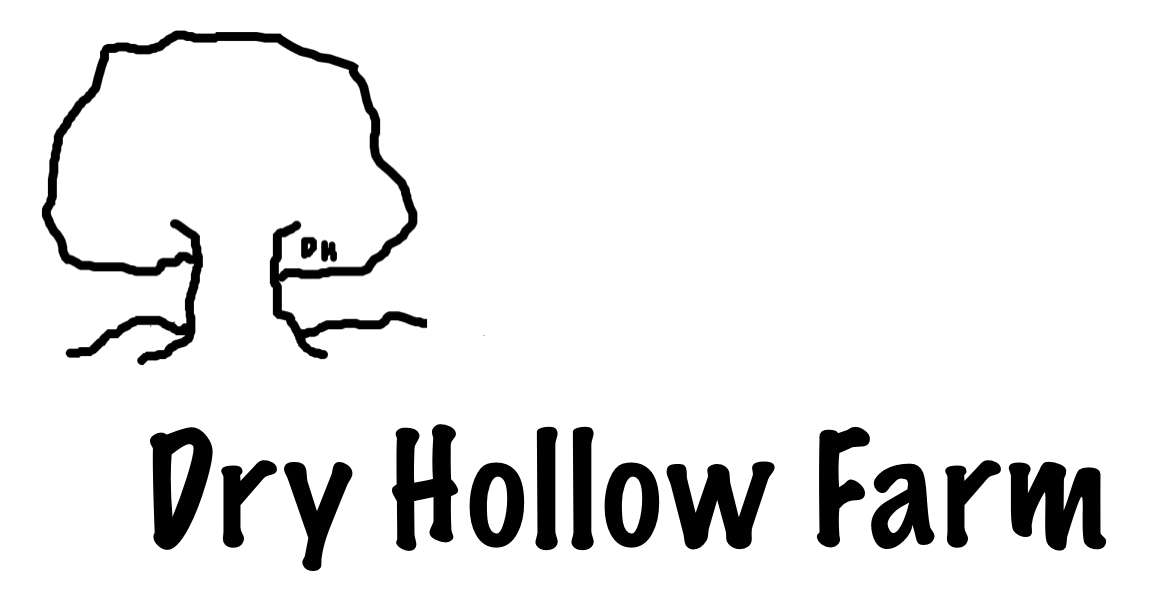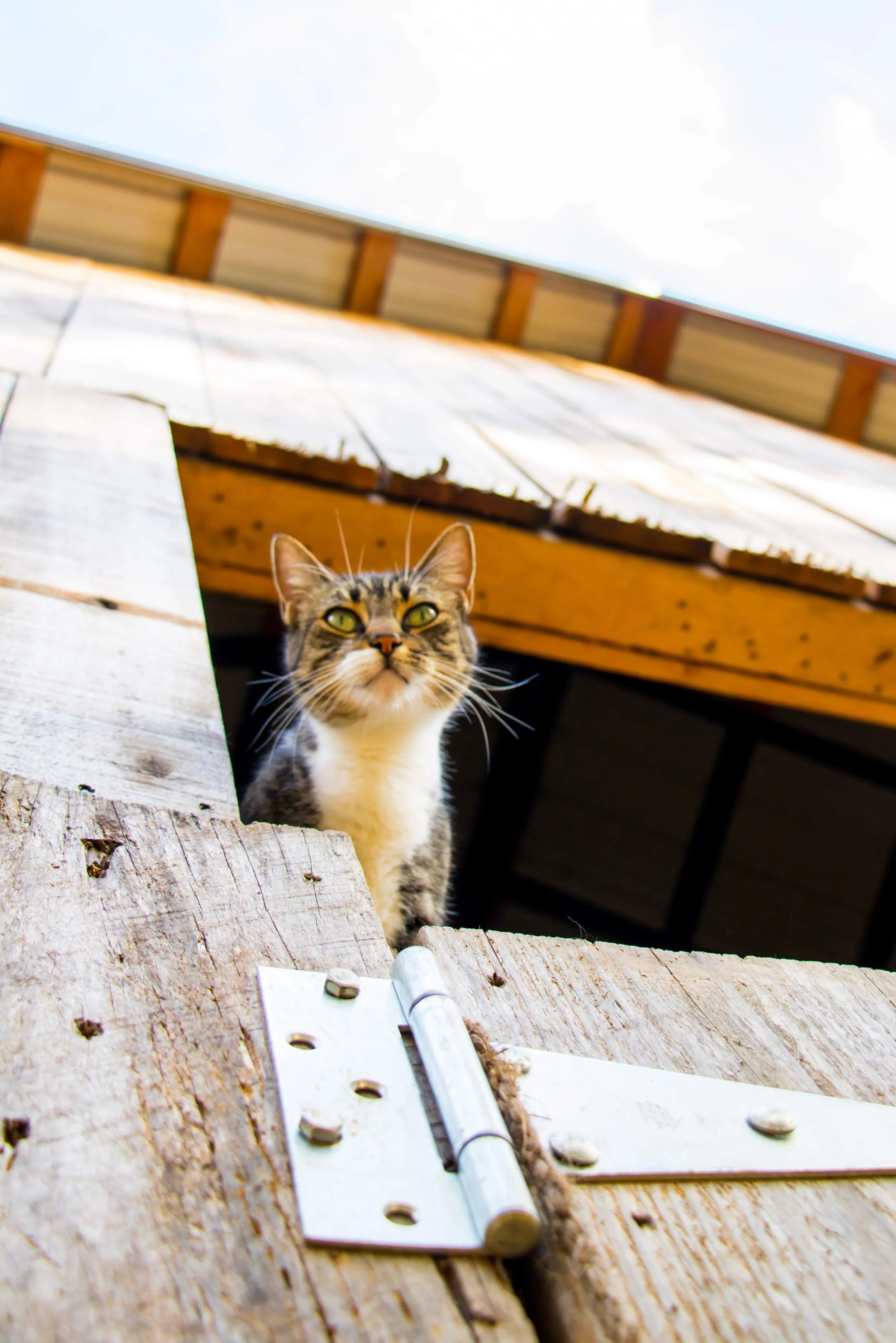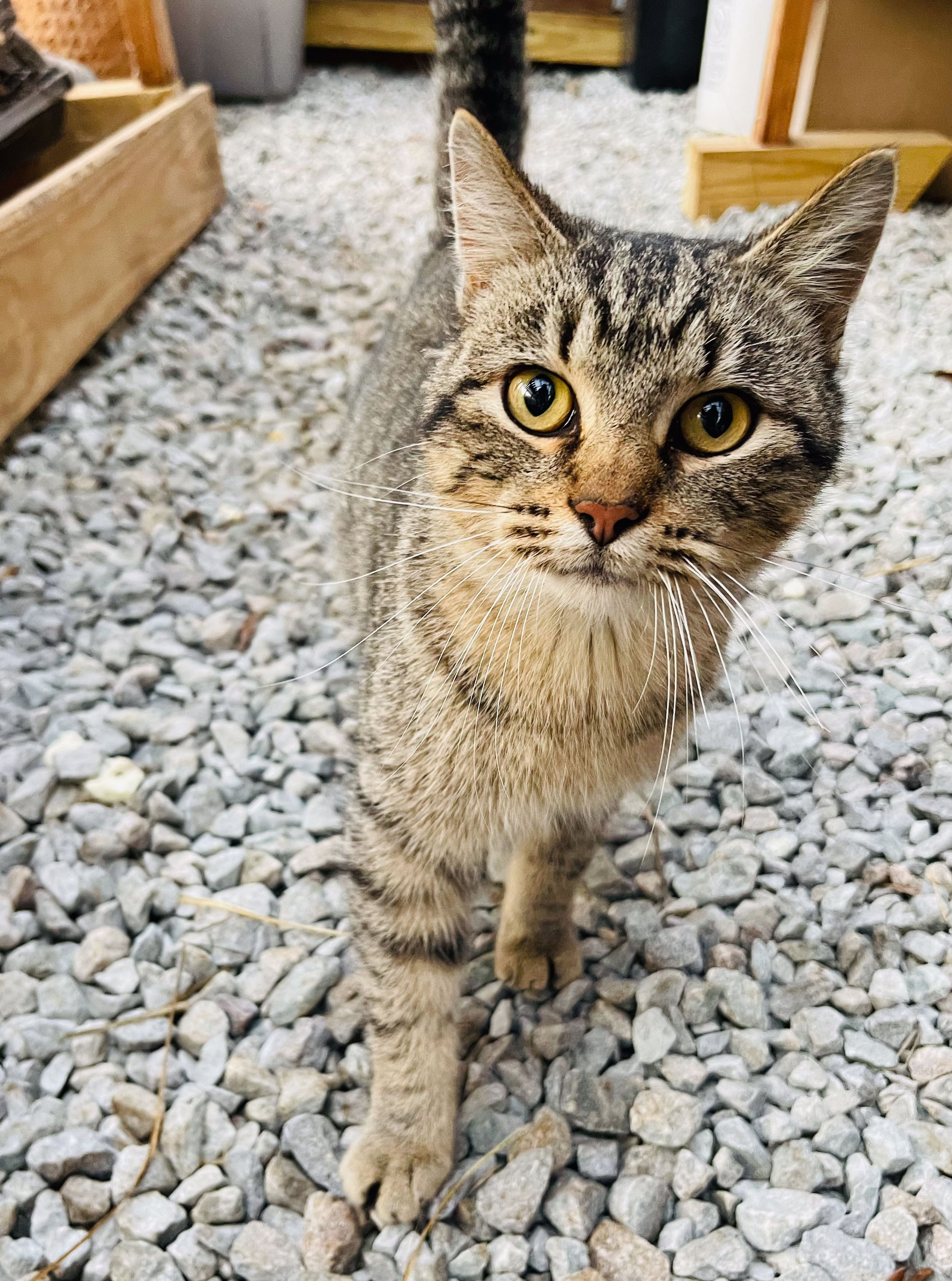Protecting the Barn
Our first summer at Dry Hollow Farm, a tiny female kitty wandered down the driveway. She was emaciated, limping, and loosing one eye ball. For the next month, we nursed her back to health. She was the first animal resident of Dry Hollow Farm, and when she gave birth to a litter of four kittens, she officially became Mama Kitty.
She and her four offspring ruled the barn and much of the farm property around the house.
Our barn cats play an important role by serving as deterrents for small vermin and predators such as mice, rats, snakes, and skunks. Our stores of grain, feed, and hay are immensely attractive to little critters anxious for a free meal, and rodents can quick contaminate a bin of cracked corn.
Another danger are the diseases rodents carry, such as rabies and salmonella, that can pass to humans and livestock. Even the smell of a cat lounging in the barn can deter their presence.
However, farm and livestock owners must keep in mind three issues regarding cats in the barn:
#1 Cats are a threat to poultry and any other small animals. Occasionally our hens hatch a clutch of eggs, and they must remain ever vigilant to protect their baby chicks. If you are considering raising chicks without a hen, then they must be protected until they are large enough to deter cat attacks.
#2 Cats can carry diseases such as toxoplasmosis that are harmful for livestock. This is generally carried through their feces. When we find hay bales that have obviously been used for cat litter, we remove them from the barn and find another purpose for them.
#3 If cats are not fixed, they will give birth to multiple at least twice a year. Each progressive litter will become more and more wild. When our original mama kitty had her litter, we had her and each of her young spayed or neutered. Five cats were enough, and they gave us many years of barn protection and lovable interaction. In subsequent years, we allowed an occasional stray to remain on the farm. Anytime they gave birth to a litter of kittens, we rarely saw them. Usually only one intact male will remain as he will run off every other male.
For us, the benefits of keeping our barn cats outweigh the risks, and we will continue to welcome them as contributing members of the Dry Hollow Farm family!
Dr. Kathryn Bush owns and operates Dry Hollow Farm, a working goat and sheep farm in Huntingdon, Tennessee. Together with her husband, Russell, she creates skincare products from their fresh goat milk, grows organic herbs, welcomes visitors to their two cabins on the farm (available for stays through Airbnb), keeps the farm’s on-site soap shop stocked with their handcrafted products, and enjoys working the farm in company with their Great Pyrenees dogs (who work hard guarding the animals). Check out their natural products featuring farm-grown ingredients here, and sign up for the Dry Hollow Farm newsletter to stay in touch and be the first to hear about farm news, events, and new products.






